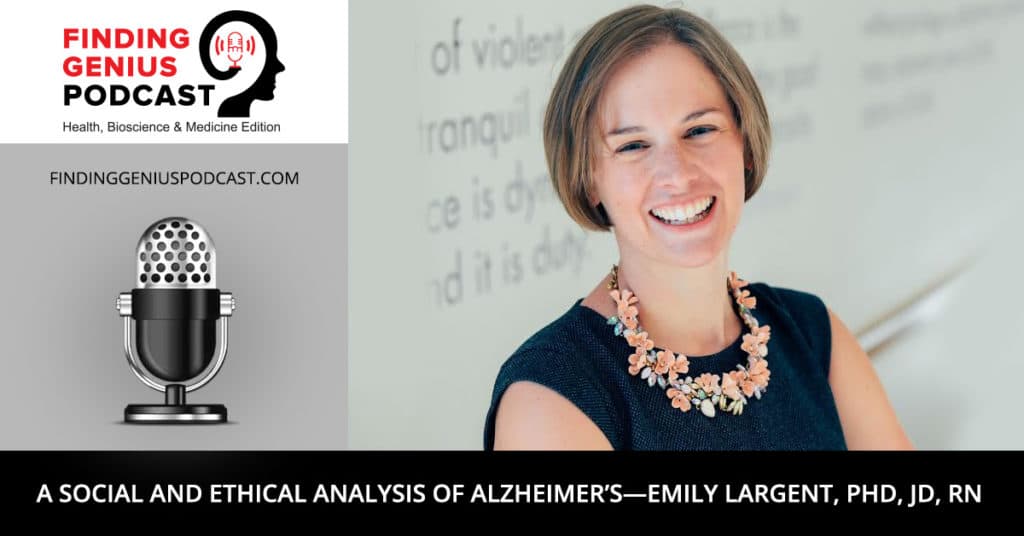
By Kamila Ahmad
Historically, a patient would not be diagnosed with Alzheimer’s disease until after the onset of cognitive decline. Biomarkers such as amyloid and neurodegeneration are changing that.
Researchers are able to use these and other biomarkers to identify individuals with “preclinical” Alzheimer’s disease, even if the individual does not yet report symptoms like memory loss. This can help develop clinical trials that hope to intervene early and potentially prevent dementia, but it also requires additional ethical considerations, Clark Scholar Emily Largent, PhD, JD, RN said on a recent episode of the Finding Genius Podcast.
“The very way in which we understand Alzheimer’s disease is changing…in ways that will have a fundamental impact on the lived experience of being diagnosed with Alzheimer’s disease for patients and their family members,” said Dr. Largent.
For example, researchers need to determine when it is appropriate to measure these biomarkers and how best to disclose them to patients, she said. Those running clinical trials also need to develop better communication strategies with research participants when a trial fails or is otherwise ended early, she said.
Additionally, Dr. Largent discussed the US goal of finding a disease-modifying therapy for Alzheimer’s disease by 2025, the work of the Penn Program on Precision Medicine for the Brain, and additional resources for individuals with Alzheimer’s disease and their families.
Dr. Largent is intentional about translating the social, ethical, and legal implications in Alzheimer’s disease research to inform quality bedside care for adults with preclinical Alzhiemer’s disease and MCI. Her primary focus is on how our understanding of Alzheimer’s disease has a fundamental impact on the lived experiences of those who are diagnosed with Alzheimer’s and their family members.
Finding Genius is a podcast focused on medical, health, and bioscience insights from practitioners, researchers, scientists, and clinicians.